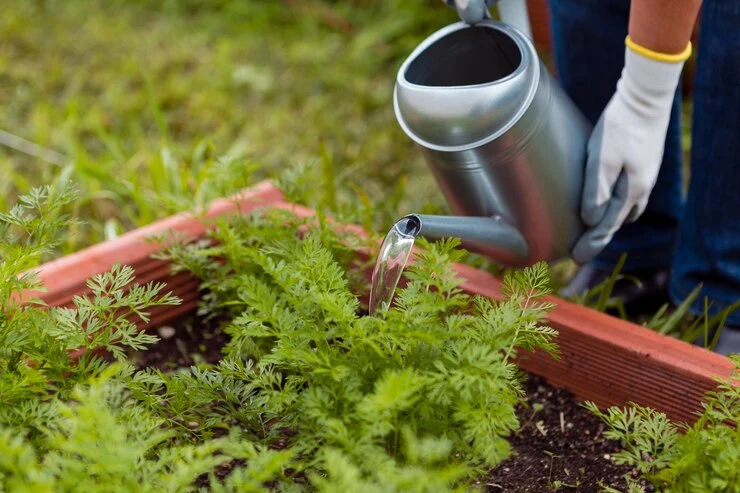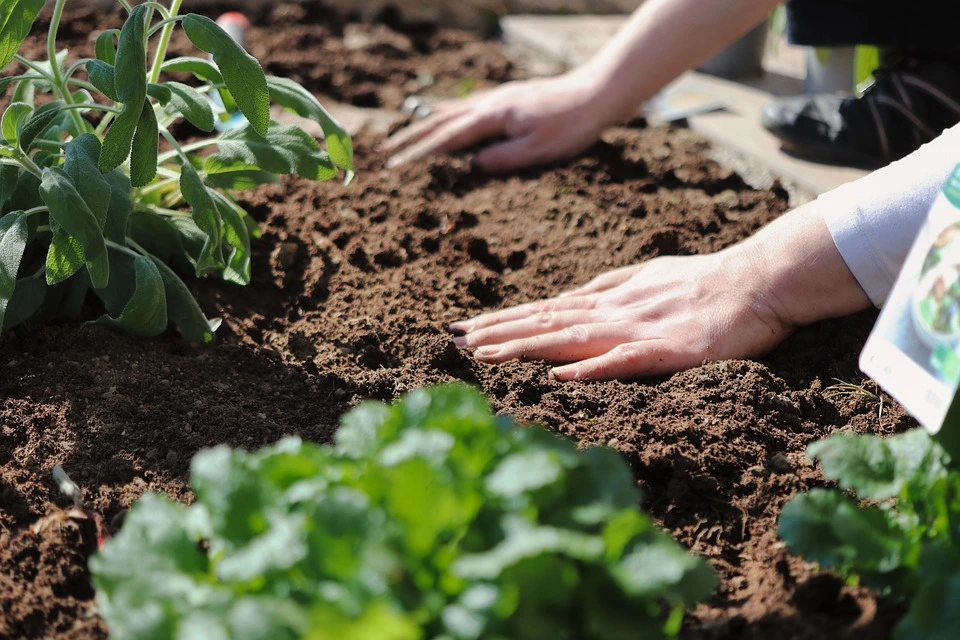Winter can be a challenging time for plants, but with the right fertilizer, you can ensure they stay healthy and vibrant. In this guide, we’ll discuss everything you need to know about using winter fertilizer for plants, from understanding its importance to choosing the best products for your garden.
Why Do Plants Need Fertilizer in Winter?
Many people assume that plants don’t need fertilizer during winter because they aren’t actively growing. While it’s true that growth slows, certain plants still benefit from winter fertilization. Here are some reasons why it’s important:
- Strengthens roots: Fertilizing during winter helps plants develop strong root systems, which are crucial for absorbing nutrients and water.
- Prepares for spring: Providing essential nutrients in winter ensures plants have a head start when the growing season begins.
- Boosts resilience: Nutrients from winter fertilizers improve a plant’s ability to withstand cold temperatures and resist diseases.
What Makes Winter Fertilizer Different?
Winter fertilizers are specially formulated with a focus on phosphorus and potassium. These nutrients:
- Phosphorus supports root development.
- Potassium boosts overall plant health and resistance.
Unlike regular fertilizers, winter blends have lower nitrogen levels. This prevents excessive top growth, which can make plants vulnerable to frost.
Best Types of Fertilizer for Winter
Choosing the right fertilizer is crucial for ensuring your plants receive the nutrients they need without causing harm. Here are the best types of fertilizers to consider:
Slow-Release Fertilizers
These fertilizers release nutrients gradually over time, making them ideal for winter. They ensure your plants receive a consistent supply of nutrients without overwhelming their slowed metabolic processes.
Organic Fertilizers
Organic options, such as compost, bone meal, and fish emulsion, provide natural nutrients that improve soil health. They’re especially beneficial for enriching the soil during winter.
Liquid Fertilizers
For plants actively growing in winter, like indoor houseplants or winter crops, liquid fertilizers can provide an immediate nutrient boost. These fertilizers are easy to dilute and apply directly to the soil or leaves.
Specialized Winter Fertilizers
Many garden centers offer fertilizers specifically formulated for winter use. These products typically have a lower nitrogen content to avoid promoting excessive leaf growth while focusing on root development.
When to Apply Winter Fertilizer?
The timing of winter fertilization is crucial to ensure your plants benefit from it. Follow these general guidelines:
- Before the First Frost: Apply your winter fertilizer in late fall, just before the ground freezes. In milder climates where frost dates are less predictable, monitor temperatures closely and apply the fertilizer when nighttime temperatures consistently dip near freezing.
- During Dormancy: For evergreen plants, light feeding during dormancy helps maintain root strength, especially in regions with milder winters where evergreens remain active year-round.
- Late Winter: As temperatures start to rise, a second application can prepare plants for spring growth. Lawns, perennials, and trees benefit the most from this, as it replenishes nutrients lost over winter. However, some plants, like established evergreens, may not need this second feeding if they are already healthy.
Pro Tip: Always check your region’s frost dates and tailor your fertilizing schedule accordingly.
How to Apply Winter Fertilizer?
Applying fertilizer correctly ensures maximum benefits. Here’s a step-by-step guide:
Step 1: Test Your Soil
Use a soil test kit to check for missing nutrients. This helps you choose the right fertilizer.
Step 2: Choose the Right Product
Choose a fertilizer that matches your plants and soil. Look for labels indicating “winter” or “fall” blends.
Step 3: Prepare the Soil
Remove debris, such as leaves and weeds, from the soil. This improves fertilizer absorption.
Step 4: Apply Evenly
Spread granular fertilizers evenly using a spreader. For liquid fertilizers, use a watering can or spray bottle.
Step 5: Water the Area
Light watering helps the nutrients penetrate the soil and reach the roots.
Common Mistakes to Avoid
Avoid these pitfalls for optimal results:
- Overfertilizing: Too much fertilizer can burn roots or lead to runoff pollution.
- Using High-Nitrogen Fertilizers: These encourage growth that can be damaged by frost.
- Ignoring Soil Type: Not all fertilizers suit every soil type.

Top Winter Fertilizers for Plants
Here’s a list of trusted products for your winter gardening needs:
Scotts Turf Builder WinterGuard
Perfect for lawns, providing balanced nutrients for root health.
Espoma Organic Fall Fertilizer
Ideal for eco-conscious gardeners, with a natural formula.
Miracle-Gro Winter Plant Food
Versatile and easy to use for various plant types.
Jobe’s Organics Bone Meal Fertilizer
Great for bulbs and flowering plants, offering high phosphorus content.
Dr. Earth Premium Gold Organic Fertilizer
A general-purpose option suitable for vegetables, flowers, and trees.
Winter Fertilizer for Specific Plants
Different plants have unique needs. Here’s how to fertilize common types:
Trees and Shrubs
- Use a granular fertilizer rich in potassium.
- Apply it around the outer edge of the plant, not right at the base.
Lawns
- Opt for a winter-specific lawn fertilizer.
- Spread it evenly over the lawn for steady growth in spring.
Flowering Plants
- Use bone meal or other high-phosphorus fertilizers.
- Fertilize bulbs like tulips and daffodils in fall.
Vegetables
- Winter crops like kale and spinach benefit from organic fertilizers.
- Avoid overfertilizing leafy greens, as it can reduce flavor.
Potted Plants
- Use liquid fertilizers for easy absorption.
- Ensure proper drainage to prevent root rot.
Tips for Organic Winter Fertilization
If you prefer natural gardening methods, follow these tips:
- Compost: Spread a thin layer around plants to add nutrients and insulate the soil.
- Bone Meal: Ideal for promoting root growth in flowering plants.
- Wood Ash: Contains potassium but should be used sparingly to avoid altering soil pH.
The Role of Mulching in Winter Care
Mulching complements fertilization by protecting plants and retaining soil moisture. Use organic mulch, such as bark or straw, to insulate roots and reduce nutrient loss.
Frequently Asked Questions
Which fertilizer is best in winter?
In winter, slow-release or balanced fertilizers with low nitrogen content are ideal. Organic options like compost or liquid seaweed are gentle and beneficial during the dormant season.
When should you not fertilize?
Avoid fertilizing during extreme heat, frost, or when plants are dormant (typically in winter). Fertilizing during these times can stress the plants and harm their roots.
What is a nitrogen-rich fertilizer?
Nitrogen-rich fertilizers include products like urea, blood meal, or ammonium nitrate. These are good for encouraging healthy, green leaves.
What is 2-3-2 fertilizer?
A 2-3-2 fertilizer contains 2% nitrogen, 3% phosphorus, and 2% potassium. It is well-balanced and often used for general plant health and root development.
Should I fertilize my outdoor plants in the winter?
It’s generally not recommended to fertilize outdoor plants in winter as most are dormant and do not actively absorb nutrients. Fertilizing during this time can lead to nutrient runoff.
How often should I fertilize indoor plants in winter?
Reduce fertilizing indoor plants in winter to once every 6-8 weeks or less, depending on the plant type. Most indoor plants grow slowly during this season.
How often should I fertilize my potted plants?
Fertilize potted plants every 2-4 weeks during their growing season. In winter, fertilize less often because the plants grow slower. Always follow the specific needs of your plant.
What is the best time to fertilize plants: morning or evening?
Morning is the best time to fertilize as plants absorb nutrients efficiently during the day. Avoid fertilizing in the evening to prevent root rot or fungal growth.
Conclusion
Using the right winter fertilizer for plants is essential for maintaining a healthy garden year-round. By choosing the appropriate products, timing your applications, and following proper techniques, you can ensure your plants thrive even in the harshest conditions. With a little effort and the right care, your garden will be ready to bloom beautifully come spring!
